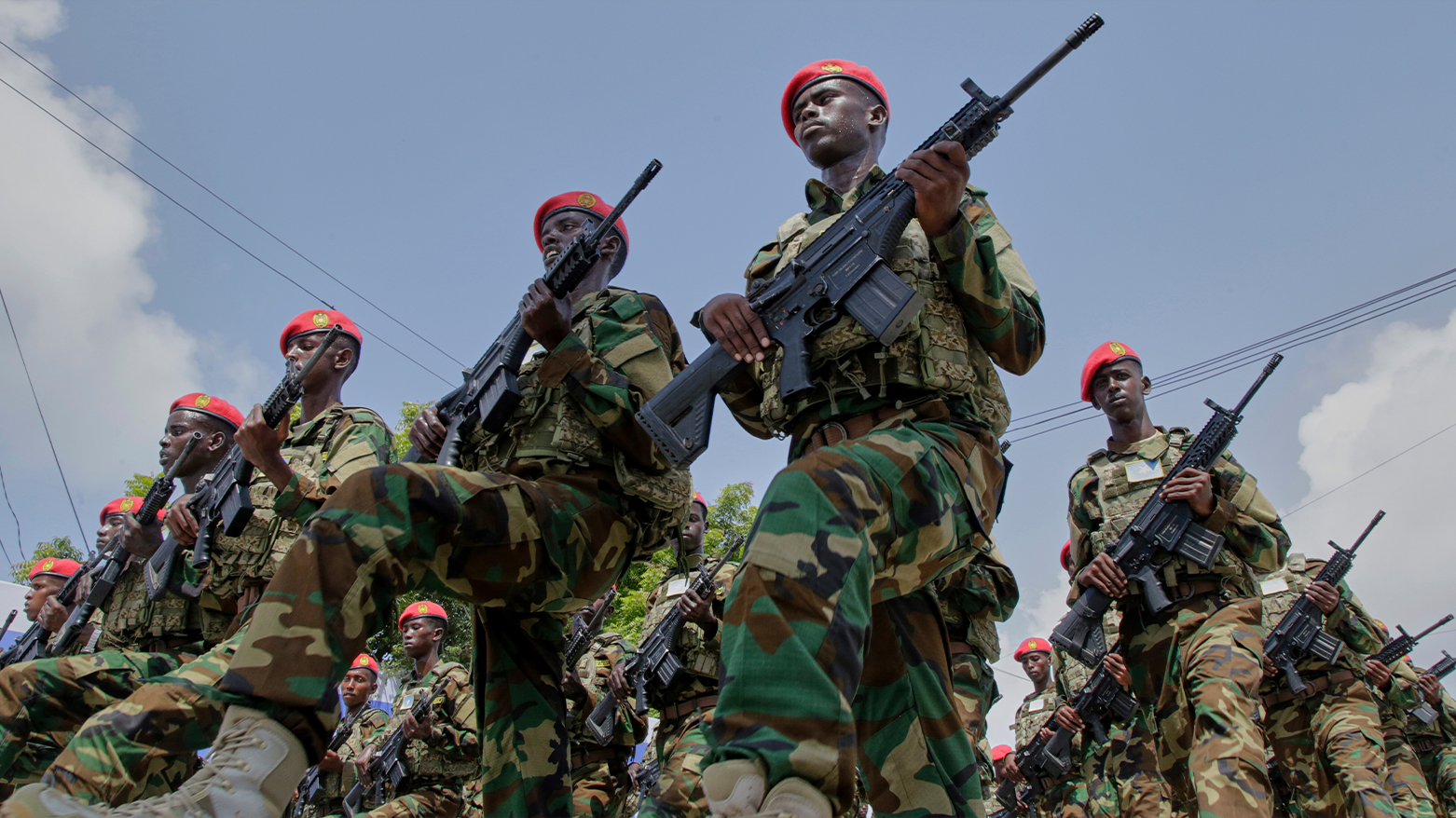Deadly Mogadishu Siege Underscores Worsening Crisis as Somali Army Claims Gains Elsewhere
A deadly Al-Shabaab siege on a Mogadishu prison underscores Somalia's worsening security, even as the army reports liberating towns and killing commanders.

ERBIL (Kurdistan24) – A brazen and bloody siege by Al-Shabaab militants, a U.S. designated terrorist group, on a high-security detention facility in the heart of Mogadishu that raged for hours late Saturday has cast a harsh spotlight on what is being described as a "worsening situation" for Somalia, even as the government announced major battlefield victories against the insurgents in the country's south.
The starkly contrasting events of the past 24 hours paint a complex and volatile picture of the conflict: while the Somali National Army (SNA) reported liberating several towns and killing senior Al-Shabaab commanders, the deadly, prolonged assault near the presidential palace underscored the Al-Qaeda-affiliated group's enduring ability to strike at the core of state power.
The attack in the capital began late on Saturday afternoon with a powerful suicide explosion that, according to an AFP correspondent who felt its shockwaves from two kilometers away, signaled the start of a coordinated assault on the Godka Jilicow detention facility.
In a statement released on Sunday, the Somali interior ministry confirmed that seven Al-Shabaab militants were killed in the ensuing battle. "The security forces succeeded in ending the terrorist attack, shooting all seven gunmen who were involved," the ministry stated. However, the government provided no information on the number of casualties suffered by its own security forces during the protracted incident.
The AFP correspondent, who reached the location approximately 30 minutes after the initial blast, reported hearing multiple subsequent explosions and intense exchanges of gunfire emanating from the facility. Local residents confirmed the severity of the siege, telling AFP they could hear sporadic gunfire for more than three hours after the assault began.
The target of the attack, the Godka Jilicow facility, is a strategically significant site, as it is known for holding Al-Shabaab militants before they are brought to trial, suggesting a possible attempt at a prison break or a symbolic strike against the state's judicial and security apparatus.
The AFP report frames the deadly siege as a grim emblem of Somalia's deteriorating security climate. The poor and unstable Horn of Africa nation has witnessed a significant resurgence in attacks from Al-Shabaab, with the situation reportedly worsening considerably this year.
According to the report, the Islamist group has seized control of dozens of towns and villages since the beginning of 2025, a devastating reversal that has undone nearly all the territorial progress the government had made during a major military campaign in 2022 and 2023.
In sharp contrast to the grim reality playing out in Mogadishu, the state-run Somali National News Agency (SONNA) on Sunday reported a series of major successes for the Somali National Army in its ongoing offensive in the southern Lower Shabelle region.
According to the SONNA report, SNA forces, supported by international partners, have intensified their operations against the militant group over the past 24 hours. The military announced it had successfully liberated the areas of Awdheegle, Raqayle, Shaangarre, and Malabo in the Lower Shabelle region, hailing the operations as "another victory in the ongoing offensive against the terrorist group."
Furthermore, SONNA reported that heavy airstrikes were conducted in the areas of Jilib, Mubaarak, Ugunji, and Kunya-Barrow. These strikes reportedly killed several senior Al-Shabaab figures, dealing a significant blow to the group's command structure.
The government identified one of the key figures killed as Mohamed Osman Mohamed, also known as "Tuutax." He was described as the deputy head of the Amniyat, Al-Shabaab's powerful intelligence and security wing, and the group's chief of explosives procurement. The elimination of such a high-value target represents a tangible success for the government's counter-terrorism efforts.
Government officials, cited by SONNA, stated that the operations dealt a "major blow to the terrorist network" and served to reaffirm the government's unwavering commitment to "fully eliminate Al-Shabaab from all remaining hideouts." This narrative of decisive military progress in the countryside, however, now stands in direct and jarring opposition to the violent siege that paralyzed a section of the capital city for hours.
The escalating conflict and deteriorating security situation form a challenging backdrop for the country's political ambitions. Despite the tense atmosphere, Somali President Hassan Sheikh Mohamud is pushing forward with plans for the country to hold its first direct elections next year, an ambitious goal in the face of such instability. The president is also navigating internal political fractures.
According to AFP, the head of state visited the province of Jubaland on Sunday, a region that has recently been the site of clashes between the national army and regional forces, which have primarily stemmed from electoral disagreements.
This highlights the complex reality facing the government, which must simultaneously confront a deadly insurgency while managing internal political tensions that threaten to further destabilize the nation.
Somalia has been mired in conflict with Al-Shabaab since the mid-2000s, with periods of both progress and severe setbacks. While the government's reports of liberating territory and eliminating key terrorist leaders in Lower Shabelle offer a glimmer of success, the audacious and sustained attack on a secure facility in the heart of Mogadishu demonstrates the persistent and grave threat the group continues to pose to the stability of the Somali state and the safety of its citizens.